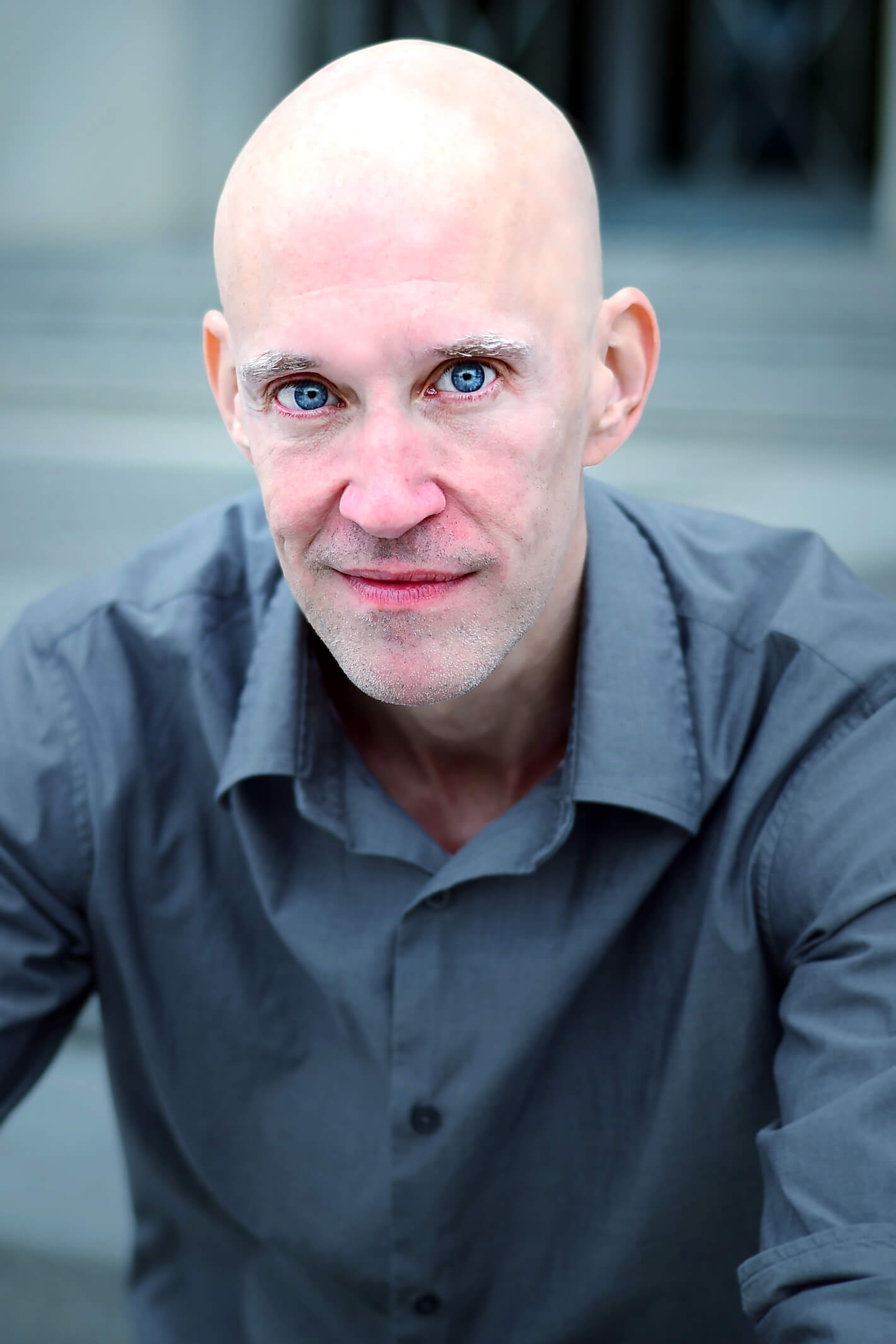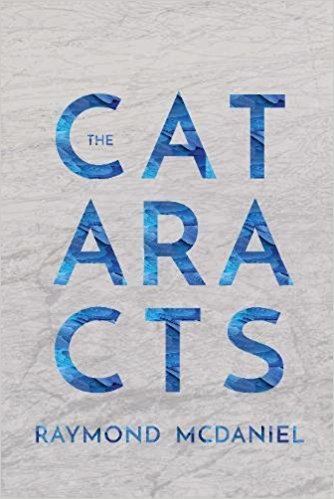Interview: Raymond McDaniel
 Midwestern Gothic staffer Sydney Cohen talked with author Raymond McDaniel about his poetry collection The Cataracts, nuances of the Midwest, his inspirations, and more.
Midwestern Gothic staffer Sydney Cohen talked with author Raymond McDaniel about his poetry collection The Cataracts, nuances of the Midwest, his inspirations, and more.
**
Sydney Cohen: What’s your connection to the Midwest?
Raymond McDaniel: I’ve lived in the Midwest — Michigan, particularly — since 1999, after a spell on the east coast. I also went to graduate school here, and that was the first time I had lived away from the Deep South and Gulf states. I have come to love the Midwest, but I remain very respectful of the multiplicity of Midwests, how complex their arrangements and histories are. When you are from Florida, you learn to be suspicious of touristic ideas about place; you also grow up with an idea of the Midwest that positions it as a sort of default America, the place from which every other place is a deviation. I feel lucky to have gotten to know it as strange and distinct, and not just the locale to which other locales refer.
SC: Your new poetry collection, titled The Cataracts, recalls both a waterfall and an opacity of the eye. Why did you choose this title for your collection, and how do your poems incorporate the book’s titular dual meaning?
RM: My dad went in for cataract surgery when I was ten years old; since he was a draftsman, the condition was making it impossible for him to work. Standard preparation for the procedure revealed he had lung cancer, and over the subsequent year-plus he had his lung removed, and a few ribs, and nearly died from a staph infection (still a sadly common consequence of spending time in a hospital). He survived, and eventually did get his cataracts removed, but by then he was no longer healthy enough to use his hands to draw. That’s the first context in which I knew the word, and so part of the book is about vision and what enables or complicates it, and how that influences how we make all sorts of things: art, meaning, objects. I didn’t know the other meaning of the word until later, but the way in which cataracts refer to a flood or a rush of water aligns with the environment I grew up in, and how I experience language and information. Seemed like too well-matched a pairing to resist.

SC: Murder (A Violet), your debut collection, tells the story of an enigmatic assassin seeking refuge from her sordid past. What intrigues you about the anti-hero, and how does this figure fit into the larger narrative?
RM: I don’t know if I am comfortable thinking of that character as any kind of hero, anti- or otherwise. The closest she gets to heroic is simply refusing to do what she never should have been doing in the first place, even if she was also raised for that explicit purpose. What interested me most about her was just that question, though: how do people come to decide against themselves, against their own inherited and manufactured norms? And when and if that changes involves a moral repudiation, how do we regard the person who has made it? Forgiveness is fairly straightforward: it is (or isn’t) extended by those who have been done wrong to the person who wronged them. But redemption is more complicated; no one can offer or declare it for you, and you surely can’t claim it for yourself. So it’s hard to grasp or imagine, but it’s still a necessary concept. Her suspicion of its possibility is what keeps her morally alert, but it’s also part of what makes her so variable and uncertain in both her properties and her behaviors.
SC: You are also well known for your insightful and animated poetry reviews for The Constant Critic. What is your process when reviewing a poem? How does meriting the worth of other poetry inform your own writing process?
RM: Reading poetry and thinking about it in public has been a true pleasure, because writing one’s own poetry is — for me, at least — a cloistered, claustrophobic feeling. I am grateful for any poetry that isn’t mine, and what I’ve enjoyed the most about reviewing is simply trying to articulate some of the possibilities any given book offers its readers. Each book has the potential to add enormously to its readers’ capacities, and identifying what problems the poems detect and how they endeavor to solve or accommodate those problems can maybe present a reader a way to approach or inhabit the poems more readily. As for how that kind of reading informs my own process, well, I think it’s true that more closely you attend to others the more precisely you become yourself.
SC: You currently live in Ann Arbor where you teach at the University of Michigan. How has the vivacious literary community in Ann Arbor influenced or inspired your own writing? What aspects of your poetry, if any, would you consider distinctly Midwest?
RM: I was very lucky to host the reading series at an independent bookstore here in Ann Arbor (the late, lamented Shaman Drum Bookshop); I learned more as a bookseller, I think, than I ever did in graduate school. It’s simply the exposure to variety that matters the most: all those different titles in different disciplines, always new authors coming through, new customers introducing you to new works (or old ones that had shamefully escaped your attention). Literati has become my go-to bookstore here, and there, too, I can always count on the staff to have enthusiastic and richly informed opinions about a wider array of things than I could ever hope to learn on my own. Similarly, the kind of teaching I do means I am always meeting and working with students from all academic fields at all stages of development and scholarship; that range, too, means that I am always learning, always adding something new to the storehouse of ideas and perspectives. Writing in this environment, and in the Midwest, has allowed me to see my origins far more clearly and acutely than I ever would have had I stayed closer to home. So I doubt anyone would find anything they would characterize as Midwestern in the work, but I also don’t think the work would exist at all without the Midwest.
SC: Who are some poets that inspire you, and why?
RM: The poets to whom I return most frequently are C.D. Wright (because she was a heroic figure for me, and the first contemporary writer who struck me as saying “yes” to all her ways of being and speaking); Gwendolyn Brooks (because she was better at everything than everyone, and could deploy every one of her skills in a single poem in a way that was unified, effectual, and unmatched in its consequences); Frank Bidart (because his moral intelligence is more candid and rigorous than we might be able to see or admit); and Lorine Niedecker (because she was just so strictly and directly her own poet). I am also always impressed and increased by the work of francine j. harris, whose poetry is brilliant and strange and unlike anything else anyone else is doing or can do, and Paisley Rekdal, who simply goes from strength to strength, becoming wiser and more kind and more profound with each book.
SC: What’s next for you?
RM: I’m currently working on a nonfiction project about the history of namelessness. Other than that, more teaching, more reading, and trying to be as noisy and ferociously demanding a citizen as I know how to be.
**
Raymond McDaniel is author of Murder, Saltwater Empire, Special Powers and Abilities and most recently The Cataracts, all from Coffee House Press. He is form Florida but currently teaches at the Sweetland Center for Writing at the University of Michigan, Ann Arbor.






